Snoozefest: The tech designed to give you a good night’s sleep
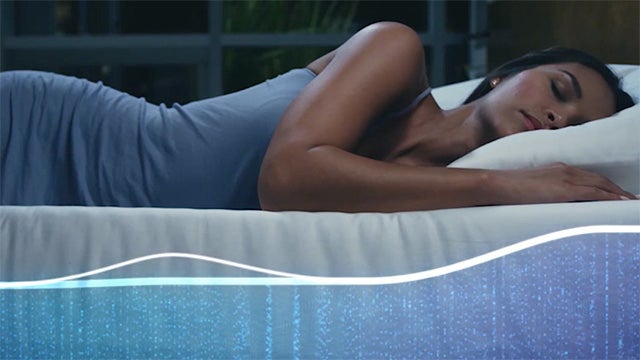
I don’t sleep well. Trouble getting to sleep, staying asleep and waking up feeling like a zombie womble are part all part of my life.
Nowhere is this more exposed than going from London to CES in Las Vegas where my issues are compounded by the joylessness of jet lag.
Related: CES 2017 latest news
It seems I’m not alone. 45% of Americans feel that poor sleep affects their daily lives, according to a National Sleep Foundation study conducted in 2014. That’s a lot of people not feeling, or performing, as well as they can.
Can tech really help? Aren’t our smartphones and late-night Netflix binges a big part of our sleep troubles?
“Tech is one hundred percent affecting our sleep adversely,” explains Jeff Evans, Program Manager of the National Sleep Foundation in the US. “Technology that has the ability to interrupt your sleep, the question is do you let it? Most of the time people are letting it badly impact their sleep simply because they don’t know what they’re doing. It’s about educating people to make the right decisions to help improve their sleep.”
While products like the Apple Watch Series 2 and Fitbit Charge HR offer sleep-tracking functions, I find them too intrusive. I don’t like things strapped to my wrist when I’m trying to get my Zs on. And while they do provide a bunch of data, they don’t offer advice on what to do with it all.
Evans believes that new tech designed specifically for tracking sleep can help improve our quality of sleep now more than ever.
“We love stuff like Apple’s Night Shift and [blue-light reduction software] F.lux. That really works. Light is the single biggest determinant of our sleep/wake cycle. Blue light that comes out of TVs and phones disrupts your natural rhythm.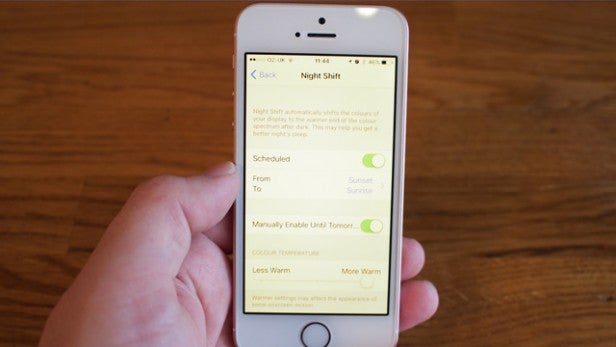
“Really at the core of how we feel about sleep tech is that now people have the ability to measure their sleep, they can finally put sleep into tangible terms.
“There are many different factors that contribute to poor sleep. It could be that you’ve simply not slept long enough, had fragmented sleep or there could be immune system factors. Sleep technology can capture all the data needed to provide advice on how to improve your sleep.”
The best sleep tech at CES
One of the most impressive debuts of sleep tech at CES 2017 is the Sleep Number 360 Smart Bed. Packed with sensors, it can understand whether you’re sleeping soundly or experiencing restlessness, are breathing well or snoring, and it can tailor each side of the bed to work for couples.
http://www.youtube.com/watch?v=sAJuZ99DgDQ
The most impressive thing about the Sleep Bed is that it doesn’t just provide you with a load of advice after you’ve had a crummy night. It proactively adapts to improve your sleep while you’re lying down. If it senses you snoring, for example, it can raise your head by 7 degrees to stop it. If you’re lying awkwardly it can use air pads to adjust you to a more comfortable position. 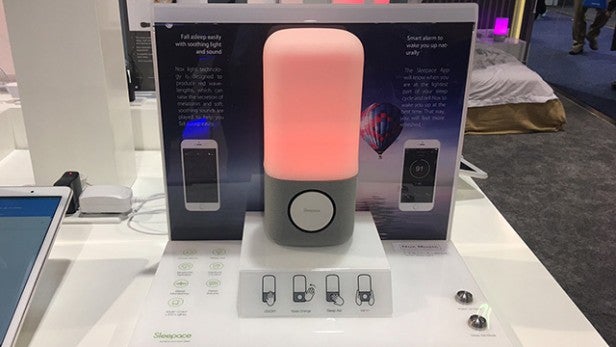
Sleepace is another company looking to improve your kip. There’s the Nox Smart Sleep Light that doubles as a Bluetooth speaker, the Sleep Dot that attaches to your pillow and measures movement, and the RestOn sleep monitor that measures heartrate and breathing. There’s never been more data available to understand how to improve sleep.
Related: Lumie BodyClock LUXE 700 review
The S+ by SleepScore doesn’t even need to be in contact with your bed. It sits on your bedside table and monitors your breathing and physical movements as you slumber.
Of course all of these solutions are connected to apps that provide a sleep score, as well as advice on how to sleep better the next night. 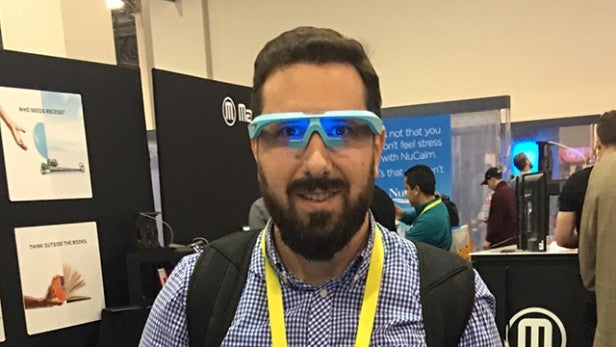
Some companies have opted for trying to wake you up fully instead. The Pegasi (above) is a Google Glass-looking device that jump-starts your day by bombing your eyes with the blue light that stops melatonin – the hormone that triggers sleep – being produced. Wear it in the morning for 24 minutes and you’ll be wide-awake, according to the makers. You will look like an idiot for 24 minutes a day, but it can combat jet lag. 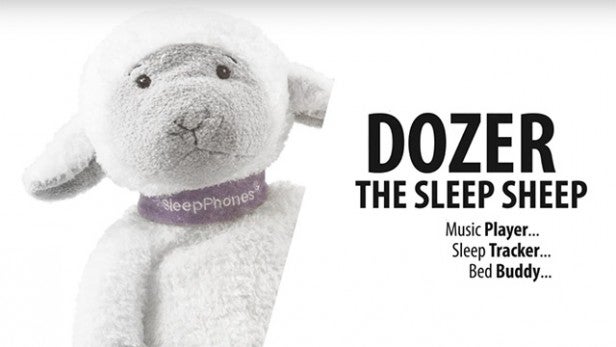
The cutest piece of sleep tech at CES was undoubtedly Dozer, the Sleep Sheep. He’s a cuddly Bluetooth speaker that monitors a child’s sleep and finds which music works best for a scream-free snooze.
If it can help my one-year-old sleep through the night then I’ll have 10 of them.


